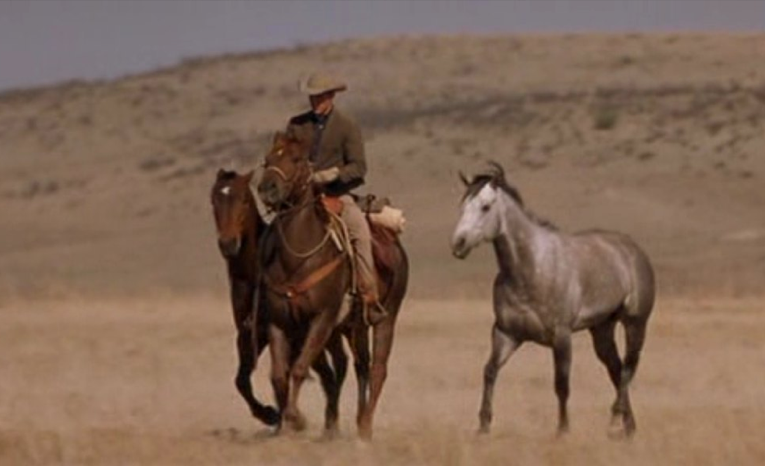
McCarthy describes John and his character several times. John Grady seems to be the last of a dying race of cowboys or “the desperados.” The pride of the West seems to be disappearing in Texas, but John Grady still embodies and respects the ideals. He is rather paternal in his mannerisms and a loyal friend. John is a quick thinker and knows how to keep a cool head in stressful situations. This is a great aid to John and his companions during their travels in Mexico. From growing up on the ranch, he knows how to speak Spanish. He is extremely moral and holds a strict code of ethics.

He knows horses and knows how to ride, and is passionate about both. He is referred to as “the boy” frequently in the novel. Grady is a cowboy in every sense of the word. Knowing that he has nothing to hold him down, he leaves his home in Texas for the Mexican plains. His father has long struggled with drinking and drugs and his mother is flirtatious and promiscuous and is dating a man nearly John’s age. John Grady desperately tries to save the ranch by buying it himself, but he is refused because he is still a minor. After his grandfather dies, his mother inherits the ranch and decides to sell it. Therefore, we are left with an involving film, but one where the leads profane God’s name eight times, share their frustration by the use of one particular curse word 14 times, and freely jump into the sack without regard for propriety, let alone biblical commands.John Grady Cole: John Grady grew up on a ranch in southern Texas.

The modern western is reined by obsessive filmmakers bent on pointing out not only men’s follies and foibles, but their crudities, as well.

While pessimism and humanism takes hold of a generation, our hero maintains that God looks out for us with his assessment, “I don’t believe we’d make it a day otherwise.”īut today’s western genre is not merely used to tell a morality play where good triumphs over evil. It wasn’t just the cowboy’s loner existence that was being displaced, but society’s outlook on honor and reverence. Like “Ride the High Country,” “The Rounders” and “The Shootist” it depicts the end of an era. A time when cowboys were seeing the nomad life they loved come to an end. This beautifully photographed story is set during a time when horses still shared importance with the automobile. How often is that quality represented in today’s movies? Yes, very depressing, and yet, there is so much being said by the protagonist.

We’re talking depressing! Boy loses ranch, gets brutalized in a Mexican prison, stands by while a pal is executed, and leaves his true love out of respect for her family’s wishes. Man, this one makes “Romeo and Juliet” look like a Doris Day comedy.


 0 kommentar(er)
0 kommentar(er)
